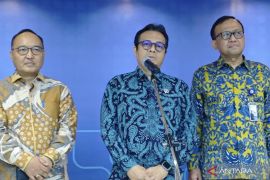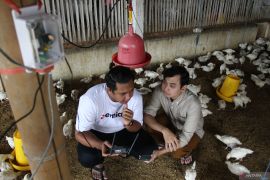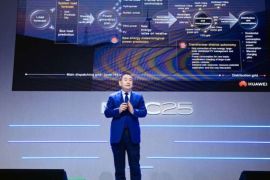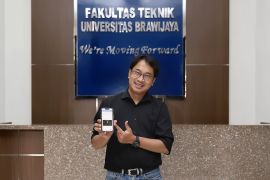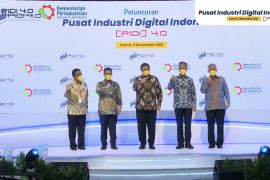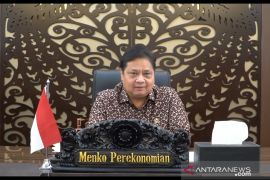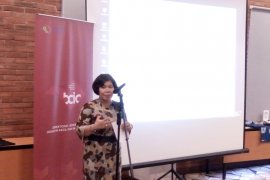Digitalization in the industrial sector will bring about changes in the manufacturing system, influenced by the wave of new technology.Jakarta (ANTARA) - The industry ministry hopes that the Industrial 4.0 system unleashes opportunities for Indonesia to become an Internet of Things (IoT) business ecosystem to fortify the structure of digital technology to apply the fourth industrial revolution.
Furthermore, Indonesia will evolve into an IoT business ecosystem worth Rp444 trillion in 2022.
"The opportunity for Indonesia to become an IoT ecosystem is huge. This potential can also be gauged from the number of internet users in the country, reaching over 140 million people. Essentially, the transformation to Industry 4.0 is the key to the success of Indonesia's future development,'' Director of the Electronics and Telematics Industry of the Ministry of Industry R. Janu Suryanto noted here, Tuesday.
Suryanto opined that implementing Industry 4.0 will additionally promote greater investment by firms, particularly those related to the utilization of the latest technology, such as IoT.
The step is expected to facilitate greater productivity and competitiveness in the manufacturing sector and give rise to an innovation ecosystem.
"Hence, Indonesia should not only become a market for digital economy but also capitalize on digital economic development to drive industrial growth and competitiveness," he noted.
IoT, artificial intelligence (AI), human-machine interfaces, robotic technology and sensors, and 3D printing technology are the five key technologies supporting the development of the Industrial 4.0 system.
Suryanto elaborated that applying Industry 4.0 aimed at automating and digitizing the production process, with a discernible rise in connectivity, interaction, and boundaries between humans, machines, and other increasingly convergent resources through information and communication technology.
"Digitalizing the industrial sector will usher in changes for the manufacturing system, influenced by the wave of new technology," he stated.
In this scenario, for instance, the production section will experience a change brought about by customer-oriented technology.
Moreover, the technology offers opportunities for production systems and flexible new business models.
To optimize the utilization of the most up-to-date technology, spotting new skills is deemed paramount. To this end, efforts should be directed towards improving the capacity of industrial human resources.
"In this era of transformation, the government has been endeavoring to ready qualified human resources to meet the requirements of Industry 4.0," he pointed out.
EDITED BY INE
Translator: Bambang Purwanto
Editor: Fardah Assegaf
Copyright © ANTARA 2019

